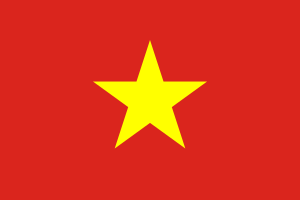
But as he waited for a train to take him back to his hometown north of the capital, Mr. Li, 50, could not help but feel wistful.
“The Olympics have finally come to China, and I won’t even be here,” he said, lounging on a woven plastic sack stuffed with his possessions. He glanced up at the “Participate in the Olympics, Enjoy the Fun” banner above his head and shrugged.
Like thousands of others who packed Beijing’s main train station on Thursday, Mr. Li was prompted to leave town by a lack of work and an unwritten government policy encouraging migrant workers to clear out until the dignitaries and journalists have gone home.
As the city readied itself for the pageantry and the fireworks of Friday night’s opening ceremonies, its main train station was packed with truck drivers, food vendors and factory workers whose jobs had been sacrificed to the Olympics juggernaut. The atmosphere was a mix of expectation and boredom, but also disappointment and regret.
Construction has been banned since July 20; factories with noxious emissions were closed all across the city. The scores of unfinished buildings that dot the skyline, their facades cloaked in Olympian banners, are a testament to the boom interrupted.
No one knows for sure how many of Beijing’s 17 million residents are migrants, but there are thought to be around 4 million. And no one disputes that their sweat has been essential to giving the city its stylish new mien.
He Yanjun and his wife, Pang Chunlian, said that for two years they had earned a decent living installing tiles in the homes of Beijing’s newly moneyed class. Like many workers, they slept on the job site until the house was nearly complete, then moved into another shell.
“It’s a rough life, but Beijing has been good to us,” said Mr. He, 43, who said he had abandoned the economic stagnation of rural Sichuan Province nearly a decade ago. “If you work hard here you can do well.”
When the work dried up last month, they rented an apartment and tried to stick it out. The jobs never came, and the rent was steep, so on Thursday the couple packed their cutting board, the electric cooking burner and a vase of plastic flowers and joined the throngs at the station. Their destination: Jiangxi Province, 24 hours away, where a relative said there was ample opportunity. Mr. He and Ms. Pang said they might come back next year, depending on whether Beijing’s construction revives after the Olympic Games.
“We can only hope,” Mr. He said.
Some people said they were leaving out of fear. Li Ping, a 33-year-old seamstress from Sichuan, said co-workers at her suitcase factory insisted that anyone who remained in Beijing without a residency permit would face a steep fine. She said she had scrambled to apply for the coveted document but was too late.
“I should have paid attention sooner,” she said.
Her boss, unsympathetic, docked her a month’s pay, or about $140. He told her that by skipping town, she was violating her contract, even if she had never signed one.
“I should be happy for the Olympics, but I’m angry,” she said. “These bosses can be so evil. I don’t think I will be coming back.”
A few rows away, Wang Yongsheng and his wife, Ma Ernu, sat in the waiting room’s orange plastic chairs looking dazed. Two weeks earlier, the couple had come to the capital from their home in Inner Mongolia in the hopes of finding treatment for Ms. Ma’s worsening kidney disease. The couple, retired farmers, said they could not find decent medical care back home.
But after spending all their money and being waved away from several hospitals, they realized their timing could not have been worse. “The doctors told us they were all too busy preparing for the Olympics,” said Ms. Ma, whose skin was discolored and covered with marble-size cysts. “The whole country is very distracted by the Olympics.” She smiled as if to say she understood.
Not everyone was leaving Beijing with regret. Wang Cheng and Xiao Xinyan said they were initially annoyed to find themselves suddenly unemployed. But facing a month of idleness, the couple, both 22, decided to seize the moment and get married.
Next week, a few days after they arrive home in Shandong Province, they look forward to giving a party for family and friends.
But what about missing the Olympics excitement? Mr. Wang, a construction worker, pondered, then said he was actually relieved to leave Beijing. “Besides,” he added, “we’ll get a better view by watching the Games on television.”
by NY Times.






















